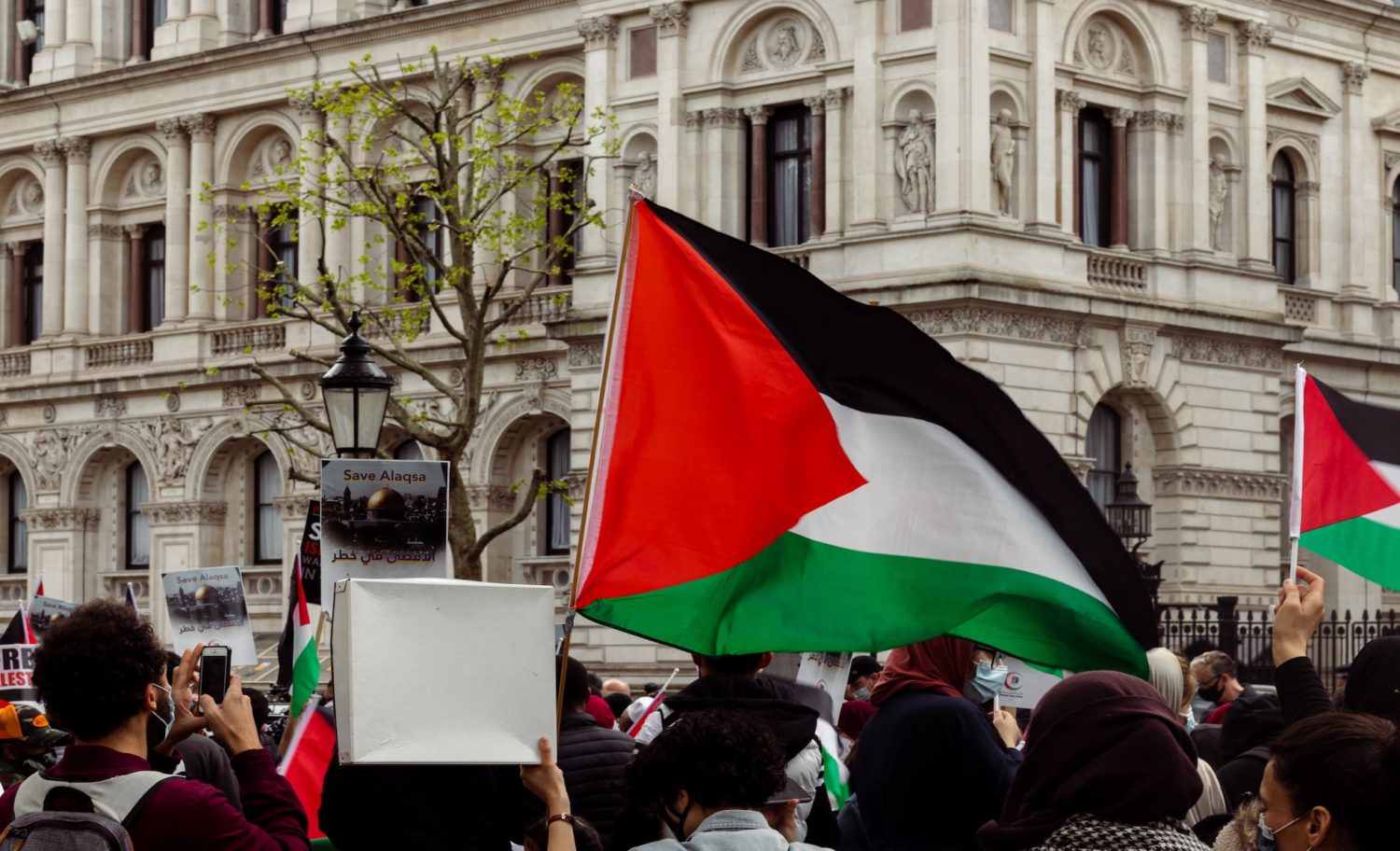Inescapable lessons
Palestine need not be a polarising issue for Starmer’s Labour, writes Peter Hain.
Those who allowed or encouraged antisemitism to flourish in Labour between 2015 and 2019 not only stabbed our Jewish members and supporters in the heart, they also sold out the Palestinians.
When was the Palestinian case heard during this painful period of recent Labour history? Party leaders contaminated by antisemitism lacked credibility if they condemned Israeli atrocities in Gaza or new Israeli government laws discriminating against its Arab citizens.
But now that our leadership is confronting rather than tolerating antisemitism, we need to move our policy forward.
I am both an active supporter of the Palestinian cause going back over 50 years and a friend of Israel. As a British minister for the Middle East in 1999 to 2001, I worked closely with both Israeli ministers and Palestinian leaders. My record of fighting apartheid, racism and antisemitism is well established.
That should be our collective starting point as a party. But it is also time for some other home truths.
It is entirely legitimate to condemn, in line with international law, right-wing Israeli government policies to increase settlements in Palestinian territories, and to evict Arab Israeli citizens from their East Jerusalem homes. It is equally legitimate to argue with apologists for those policies that they are promoting extremism amongst Palestinians: the failure to successfully conclude negotiations with Yasser Arafat’s Palestine Liberation Organization in the early 2000s led to it being eclipsed by Hamas and in time could well lead to ISIS in Gaza.
It is also fair to question whether the two-state solution Labour, along with the UN, UK, Europe and the US has promoted, is any longer viable when life for Palestinians living on their own land in the West Bank and East Jerusalem is a constant civil-rights struggle: they have little to no say over an archipelago of isolated Palestinian territorial islands within a sea of Israeli controls, checkpoints, bases, and settlements.
If Israel’s relentless expansion into Palestinian territories cannot be stopped, then the Palestinian presence in the West Bank and East Jerusalem will remain in a permanent and ever-more formalised ‘Bantustan’ status – islands of minimal self-governance with the continued denial of basic rights, perpetual insecurity and threatened physical removal.
In April 2014, US secretary of state John Kerry warned that Israel risked becoming an ‘apartheid state’ if it failed to conclude a historic peace deal with the Palestinians. It did not – and the plight of the Palestinians has since deteriorated even more dramatically.
On the other hand, Hamas is its own worst enemy. And the Palestinian Authority – riddled with corruption, with a president who has not been reelected for many years and tolerates continued Israeli expansionism – acts with increasing authoritarianism and suppresses dissent and hardly invites confidence either.
Yet the international community has also got it badly wrong since 2006, by pillorying instead of engaging with Hamas, making things worse rather than better. Recently, even Tony Blair has acknowledged that it was wrong to boycott Hamas after their 2006 election win.
The anti-apartheid struggle was won partly because Nelson Mandela’s African National Congress spoke with authority for the cause, embraced allies on a broad basis – from liberals to communists, from churches to trade unionists – and offered a united front. The very opposite is true of the Palestinians, divided amongst themselves, with Hamas prone to Islamic extremism and to attacks on Israeli civilians – and a Palestinian Authority lacking credibility, neither achieving any progress.
As for international efforts to promote peace, initiatives have come and gone, and violence has returned to fill the vacuum. Fly-in, fly-out diplomacy has failed. Periodic engagement has led to false starts and dashed hopes. International forces have not been aligned and dialogue has been stunted.
But Hamas and Israel cannot militarily defeat the other; they will both have to be party to a negotiated solution which satisfies Palestinian aspirations for a viable state and Israel’s need for security.
The inescapable lessons from Northern Ireland and South Africa are that deep conflicts will never be resolved through violence, fundamentalism, sectarianism or a refusal to talk to enemies. Either side may have temporary advances. But the solution in the end has to be political, and the mechanism has to be negotiation.
And both those conflicts were at least as deep, if not more so, than the divide between Israelis and Palestinians.
Relative peace and democracy in South Africa and Northern Ireland is today taken for granted. In fact the anti-apartheid struggle took most of the hundred years of the African National Congress’ life, with the roots of apartheid going back even further to colonialism. On the island of Ireland, eight centuries of Anglo-Irish history, sharpened by violent conflict, created virulent and seemingly irreconcilable fault lines. Such lessons must also inform Labour’s future agenda on justice for the Palestinians and security for Israelis.
Image credit: Yousef Salhamoud via Unsplash

